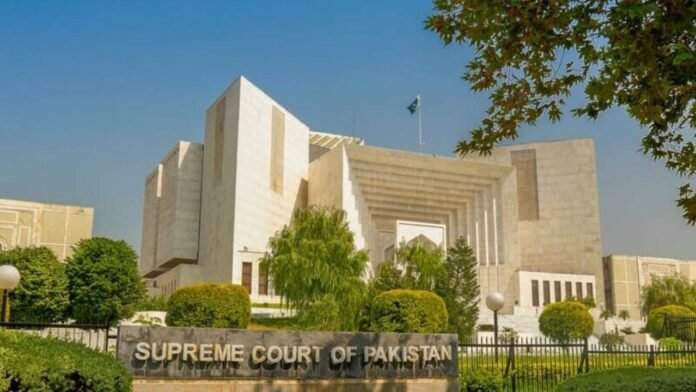Islamabad: The Pakistan People’s Party (PPP) has filed a review petition in the Supreme Court challenging the decision to allot reserved seats to Pakistan Tehreek-e-Insaf (PTI).
Farooq H. Naek Advocate
Farooq H. Naek Advocate, on behalf of the PPP, filed the review petition against The decision on reserved seats dated July 12, involving Hamid Raza, The Election Commission, and 11 other respondents. The PPP has asked the Supreme Court to take back its decision, arguing that Chairman Sunni Ittehad Council Hamid Raza contested elections as an independent candidate. Since no one contested from the Sunni Ittehad Council, they cannot be allocated reserved seats. PTI did not file a petition, nor were they a party in the case, yet they were granted reserved seats without request.
The PPP contends that the Supreme Court’s order is silent on the core issue and that the court’s July 12 order contradicts the principles of constitutional interpretation. The judicial findings contradict the representations made by the Sunni Ittehad Council and other respondents. The Sunni Ittehad Council and PTI are separate political entities, and the court’s order granting 41 members a 15-day grace period conflicts with the Constitution and the law.
the Sunni Ittehad Council
Out of the 80 members of the Sunni Ittehad Council, none appeared before the court. PTI was never a party at any forum, and designating 39 members to PTI is subject to review. The PPP raised several questions regarding the Supreme Court’s decision: Should the Sunni Ittehad Council be given reserved seats? Should a party that did not submit a list be allocated reserved seats? Should reserved seats be given to a party whose candidates did not submit nomination papers? Can reserved seats be left vacant or given to a party that contested the elections? Should a party with no candidate winning a national or provincial seat receive reserved seats? What constitutes proportional representation regarding reserved seats?
Notably, the Supreme Court nullified the decisions of the Peshawar High Court and the Election Commission, ordering the allocation of reserved seats to PTI. The Pakistan Muslim League-Nawaz (PML-N) has filed a review petition against this decision. However, the three-member judges’ committee, established under the Supreme Court’s Practice and Procedure Act, has scheduled the review petition after the September holidays.
The PPP’s argument rests
The PPP’s argument rests on several key points. Firstly, they argue that Hamid Raza, an independent candidate, and the Sunni Ittehad Council, as an entity, are not entitled to reserved seats since no one contested the elections under their banner. The PPP claims this allocation is unjust and not by electoral laws. Secondly, the PPP highlights that PTI neither petitioned for these seats nor was involved in the original case. The party was granted seats unsolicited, which the PPP views as a significant procedural anomaly. Thirdly, the PPP asserts that the Supreme Court’s decision lacks clarity on the fundamental issues at stake, particularly regarding the interpretation of constitutional principles.
Moreover, the PPP questions the validity of the judicial findings that contradict the claims made by the Sunni Ittehad Council and other involved parties. It emphasizes the distinction between the Sunni Ittehad Council and PTI as separate political entities, arguing that the court’s decision amalgamates their interests incorrectly. The 15-day grace period given to 41 members is also contested as inconsistent with constitutional and legal provisions.
The review petition raises broader questions about electoral fairness and the principles of proportional representation. The PPP challenges whether reserved seats should be allocated to a party that did not submit a candidate list or nomination papers. They also question whether seats can be left vacant or given to a party that participated in the elections but did not win any seats. Thus, the PPP’s petition not only seeks to overturn the specific decision regarding PTI. But also aims to clarify the broader application of electoral laws concerning reserved seats.
The PPP’s review petition
The PPP’s review petition addresses perceived injustices in the Supreme Court’s decision to allocate reserved seats to PTI. Raising fundamental questions about electoral law and proportional representation in Pakistan. The outcome of this petition is scheduled for review after the September holidays. It will have significant implications for the country’s political landscape and the interpretation of electoral principles.


